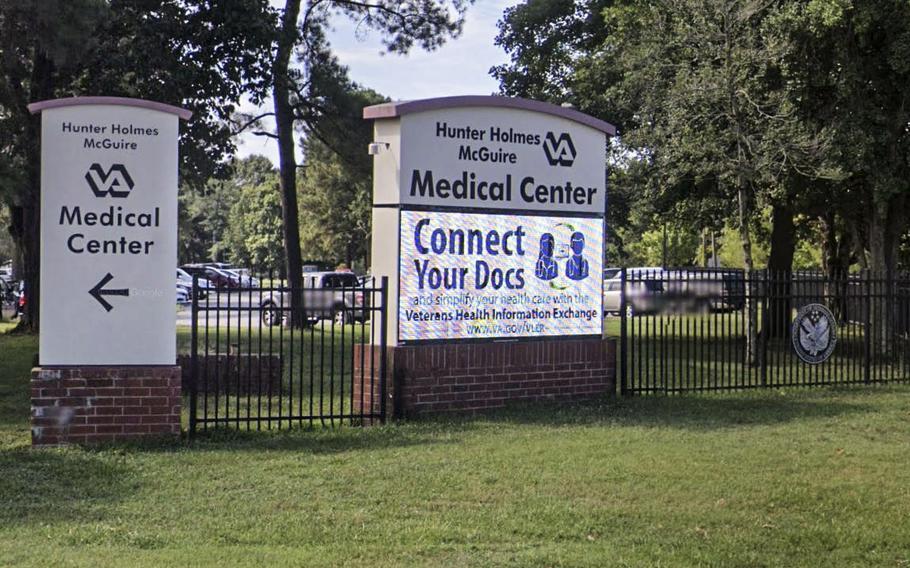
Officials for the Department of Veterans Affairs said the agency is not considering a name change for the Hunter Holmes McGuire VA Medical Center in Richmond, Va., which honors the personal doctor to Stonewall Jackson, one of the most famous Confederate generals of the Civil War. (Google Maps)
WASHINGTON — The Department of Veterans Affairs does not plan to change the name of one of its hospitals that honors a Confederate physician who suggested castrating Black men accused of sexual crimes.
Christina Noel, a VA spokeswoman, said the agency is not considering a name change for the Hunter Holmes McGuire VA Medical Center in Richmond, Va., which honors the personal doctor to Stonewall Jackson, one of the most famous Confederate generals of the Civil War.
The call to remove statues of Confederates leaders or renaming buildings that honor them gained momentum during the summer amid nationwide protests against police brutality following the killing of George Floyd by Minneapolis police. That movement spurred Congress to pass a measure renaming military bases that honor Confederates.
On Monday, the statue of Confederate Gen. Robert E. Lee inside the U.S. Capitol was removed and relocated to the Virginia Museum of History and Culture.
However, VA Secretary Robert Wilkie said in a recent interview that he hasn’t heard about any concerns from veterans about facilities named after Confederates. He also said "the president has been very clear on that" when asked about efforts to rename facilities.
President Donald Trump has been a staunch defender of preserving Confederate statues and their names on military bases, most of which date back to the Jim Crow-era of the early 1900s. Trump has threatened, in part, to veto the 2021 National Defense Authorization Act because it includes the measure to rename the bases.
Hunter Holmes McGuire was a doctor in the Confederate army who served in multiple major battles of the Civil War. McGuire amputated Jackson’s left arm and removed a ball from his right hand after the general was wounded. Jackson died of pneumonia six days later with McGuire at his side.
After the Civil War, McGuire penned a journal with another doctor about studying the alleged sexual crimes of Black men that he believed were widespread. McGuire wrote castration should be the punishment for the crimes.
McGuire also served as president of the American Medical Association from 1893 to 1894. In addition to him being honored by VA, there is a statue of him sitting at the Virginia State Capitol.
“Black service members have fought and died for our country since well before the law treated them as full citizens," Common Defense, a progressive veteran organization, said in a statement. "It’s those veterans, not racist and treasonous Confederates, who truly embodied the VA’s mission to serve and care for our country’s ex-service members — the naming of our VA facilities should honor and reflect that."
Wilkie’s leadership of the VA has been called into question in recent weeks by some Democrats on Capitol Hill and some veteran organizations over his handling of a Navy reservist’s claim that she was sexually assaulted at a VA hospital. Wilkie challenged the allegation as a political attack against him and attempted to smear the woman who made the claim. Some lawmakers and veterans groups have called on Wilkie to resign or Trump to fire him.
"Secretary Wilkie's dedication to honoring a slavery-supporting Confederate doctor by retaining his name on a VA medical center is shameful but unfortunately completely in keeping with his failed leadership of the department,” said Jeremy Butler, CEO of Iraq and Afghanistan Veterans of America.
McGuire’s descendants wrote in the Richmond Times-Dispatch in August that they support the Confederate doctor’s name being scrubbed from buildings, and that his writings can’t be defended.
beynon.steven@stripes.com Twitter: @StevenBeynon